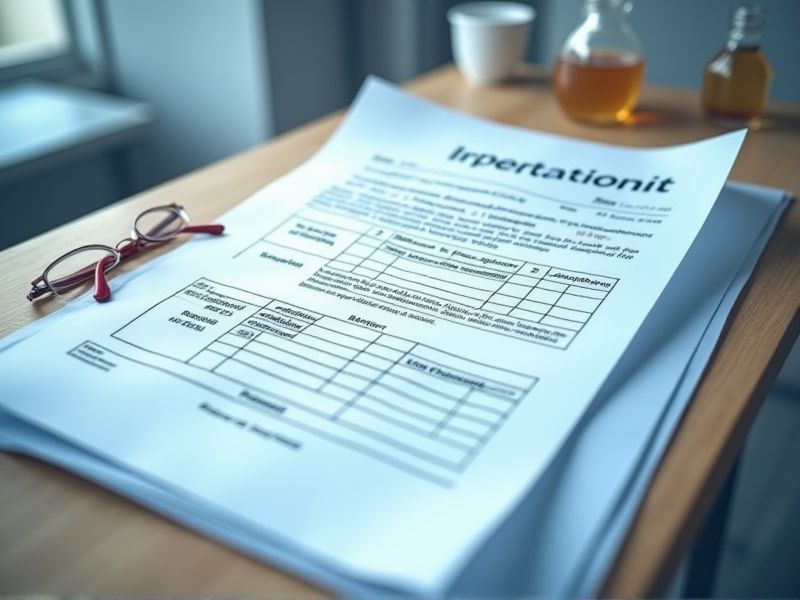
Forensic laboratory analysts must maintain high levels of accuracy and reliability, necessitating specific certifications to ensure adherence to industry standards. Such certifications validate the analyst's expertise in handling complex forensic tools and technologies, thus enhancing their credibility in court proceedings. As the field involves sensitive data, certifications also guarantee proficiency in ethical and legal considerations. Essential certifications for a forensic laboratory analyst are outlined below.
American Board of Criminalistics (ABC) Certified Forensic Scientist
A forensic laboratory analyst relies on the expertise of an American Board of Criminalistics (ABC) Certified Forensic Scientist to ensure accurate and reliable test results. This certification validates a scientist's proficiency in critical aspects like DNA analysis and toxicology, enhancing the credibility of the forensic findings. Laboratories benefit from certified professionals as they help maintain high standards and minimize errors during criminal investigations. Legal authorities and courts often require certified evidence to uphold justice, making the role of an ABC Certified Forensic Scientist crucial in the judicial process.
International Association for Identification (IAI) Certification
The IAI Certification provides forensic laboratory analysts with a standardized framework, ensuring consistent methodology and practices across the board. This certification enhances credibility in courtrooms, as it serves as a recognizable mark of expertise and reliability. Law enforcement agencies and legal professionals often require this certification to instill confidence in the forensic results presented. The rigorous training and examination involved in obtaining IAI Certification ensure that analysts are up-to-date with the latest advancements and ethical standards in forensic science.
American Board of Forensic Toxicology (ABFT) Certification
The ABFT certification ensures that a forensic laboratory analyst possesses the necessary skills and knowledge to perform toxicological analyses accurately. This certification acts as a benchmark for maintaining high standards and reliability within the forensic community, fostering trust in lab results. Holding an ABFT certification may enhance an analyst's credibility and can be crucial for legal proceedings where expertise and accuracy are vital. Laboratories often seek ABFT-certified analysts to uphold their reputation and meet industry regulations.
Certified Forensic Analyst (CFA)
A Certified Forensic Analyst ensures accuracy and reliability in forensic laboratory analyses, which are critical for legal proceedings and justice outcomes. Certification signifies adherence to industry standards and best practices, reducing the risk of errors or biases in forensic investigations. Forensic laboratories often face complex cases requiring specialized knowledge, which CFAs are trained to manage effectively. The certification also signals a commitment to continual learning and staying updated with evolving forensic technologies and methodologies.
Certified Crime Laboratory Professional (CCLP)
The presence of a Certified Crime Laboratory Professional (CCLP) ensures adherence to high standards of forensic analysis, which minimizes error rates in laboratory results. CCLPs enhance the credibility of forensic evidence presented in court through validated and standardized procedures. Their certification increases professional competency, which drives improvements in laboratory operations and efficiency. A CCLP designation can lead to better investigative outcomes by ensuring that evidence analysis supports accurate criminal justice processes.
Association of Firearm and Toolmark Examiners (AFTE) Certification
Obtaining AFTE certification equips a forensic laboratory analyst with the standard competencies essential for accurately identifying and analyzing firearm and toolmark evidence, thereby enhancing reliability in forensic investigations. This certification provides analysts with a structured framework for professional development, leading to increased trust in their findings during legal proceedings. Holding an AFTE certification ensures standardized methodology across laboratories, reducing discrepancies and improving the consistency of forensic results. Aligning with AFTE standards helps laboratories to defend their analyses under stringent judicial scrutiny, thereby strengthening their role in the criminal justice system.
Forensic DNA Analyst Certification
Forensic DNA Analyst Certification ensures standardized expertise, enhancing the accuracy and reliability of DNA analysis in criminal cases. Certified analysts are better equipped to adhere to stringent laboratory protocols, reducing the risk of contamination and error. Certification fosters professional credibility, influencing courtroom testimonies and strengthening case outcomes. Regulatory bodies and legal entities often mandate certification to ensure compliance with legal and ethical standards in forensic practices.
ISO/IEC 17025 Laboratory Accreditation
ISO/IEC 17025 laboratory accreditation ensures that forensic laboratory analysts adhere to internationally recognized standards, enhancing the reliability and accuracy of their results. By meeting these standards, laboratories demonstrate technical competence, which builds trust among the legal system, law enforcement, and stakeholders involved in criminal investigations. Accreditation aids in maintaining consistency across forensic processes, reducing the likelihood of errors and increasing confidence in the findings. As forensic evidence often plays a crucial role in legal outcomes, having accredited laboratories is vital to ensure the integrity and credibility of the judicial process.
Certified Digital Forensics Examiner (CDFE)
The role of a Certified Digital Forensics Examiner (CDFE) is pivotal in a forensic laboratory as it ensures accurate retrieval and analysis of digital evidence, which is critical for solving cybercrimes. CDFEs are skilled in identifying potential breaches and tracing digital footprints, which assists in legal proceedings and strengthens cases. Their expertise in handling sophisticated digital tools and methodologies minimizes the risk of evidence contamination, thereby preserving the integrity of forensic investigations. The rapidly evolving nature of cyber threats necessitates a specialized role like the CDFE to stay ahead of cybercriminal activities and enhance cybersecurity measures.
Forensic Quality Management Certification (FQMC)
Forensic Quality Management Certification (FQMC) ensures that forensic laboratory analysts adhere to standardized procedures, enhancing the reliability of their results. Without such certification, there's an increased risk of errors and biases that could compromise legal outcomes and investigations. FQMC equips analysts with updated knowledge on best practices, which is critical in a rapidly evolving field like forensic science. Proper certification also fosters trust among legal professionals and the general public in the accuracy and integrity of forensic work.
Summary
By obtaining certifications, you enhance your credibility and employability in the forensic science field. Employers typically value certified analysts, expecting more accurate and reliable work. Certification often leads to increased responsibilities and potential salary advancements due to recognized expertise. This professional growth positively impacts investigations, resulting in higher confidence in forensic results.
